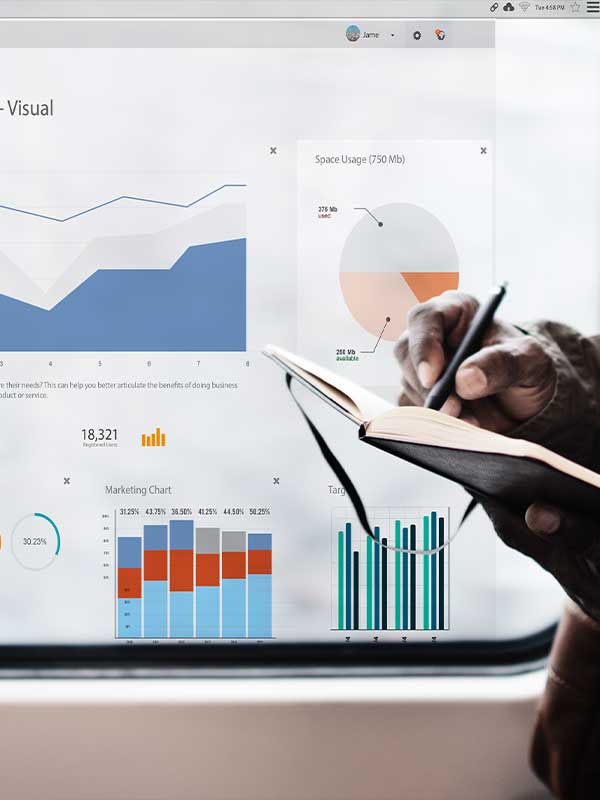

Geospatial Tools for Development: Data and Inference
Leveraging geospatial data for applied research in Development Economics.
Course overview
Geospatial data is becoming ever more widely available, for example, in the form of georeferenced internet traffic, satellite imagery, or through the digitalization of historical maps. Exploiting such data has become a key skill for empirical researchers in economics and beyond.
This course seeks to introduce the wide range of different geospatial data sources available, to deliver the practical skills required for using this data, and to showcase applications in which those can be used for conducting causal research in development economics.
The objectives of this course are threefold: First, we will learn about the different types and formats of geospatial data and introduce a set of basic tools that can be employed for extraction and modification of this data. Second, we will review selected pieces of economic research that use geospatial data in the field of development economics. Third, through continuous hands-on exercises using specific computer programs, we will learn the necessary skills to replicate these approaches and harness the benefits of geospatial data for applied research in development.
Faculty
Who is this course for?
This course would suit individuals with the following background:
- Any students and practitioners interested in geospatial data and policy analysis
Learning outcomes
Upon completion of the course, participants will be able to:
- Identify various types and formats of geospatial data available for research
- Use basic tools for extracting and modifying geospatial data
- Apply geospatial data in research
- Have hands-on experience in replicating research approaches
- Leverage geospatial data for empirical research in development economics
Key topics for Geospatial Tools for Development: Data and Inference course
Here is a list of themes and topics you will cover during the course.
Introduction
- Types of spatial data
- Spatial objects
- Spatial reference and projection
- Satellite data
- Cartography
GIS for Economists: Basic Tools
- Overlay/collapse
- Buffer/distance
- Elevation/least cost paths
Statistical Inference I: Spatial Regression Discontinuity Design
- Approach and assumptions
- Examples
- Replication exercise
Statistical Inference II: Spatial Propagation
- Approach and assumptions
- Examples
- Replication exercise
Optional: Topics in Spatial Economics
- Combining survey and weather data
- Cluster-robust inference
- Replication exercise
List of References
The following texts will help you prepare for the course.
Articles and Books
- Brodeur, A., Lekfuangfu, W. N. and Zylberberg, Y.: 2017, War, migration and the origins of the Thai sex industry, Journal of the European Economic Association 16(5), 1540–1576.
- Burgess, R., Hansen, M., Olken, B. A., Potapov, P. and Sieber, S.: 2012, The political economy of deforestation in the tropics, The Quarterly Journal of Economics 127(4), 1707–1754.
- Dell, M.: 2015, Trafficking networks and the mexican drug war, The American Economic Review 105(6), 1738–1779.
- Dell, M.: 2010, The persistent effects of peru’s mining mita, Econometrica 78(6), 1863–1903.
- Dinkelman, T.: 2011, The effects of rural electrification on employment: New evidence from south africa, The American Economic Review 101(7), 3078–3108.
- Donaldson, D.: 2018, Railroads of the raj: Estimating the impact of transportation infrastructure, The American Economic Review 108(4-5).
- Gonzalez, R. M.: 2016, Social monitoring and electoral fraud: Evidence from a spatial regression discontinuity design in afghanistan, Technical report.
- Gröger, A. and Zylberberg, Y.: 2016, Internal labor migration as a shock coping strategy: Evidence from a typhoon, American Economic Journal: Applied Economics 8(2), 123–153.
- Gröger, A. and Zylberberg, Y.: 2024, The Pick of the Crop: Agricultural Practices and Clustered Networks in Village Economies, BSE Working Paper No. 1426.
- Heblich, S., Trew, A. and Yanos, Z.: 2021, East side story: Historical pollution and persistent neighborhood sorting, Journal of Political Economy 129(5).
- Henderson, J. V., Storeygard, A. and Weil, D. N.: 2012, Measuring economic growth from outer space, The American Economic Review 102(2), 994–1028.
- Hodler, R. and Raschky, P.: 2014, Regional favoritism, The Quarterly Journal of Economics 129(2), 995–1033.
- Imbens, G. and Zajonc, T.: 2011, Regression discontinuity design with multiple forcing variables, Report, Harvard University.[972] .
- Kudamatsu, Masayuki, GIS for Credible Identification Strategies in Economics Research, CESifo Economic Studies 64(2), 327–338.
- Lipscomb, M., Mobarak, M. A. and Barham, T.: 2013, Development effects of electrification: Evidence from the topographic placement of hydropower plants in brazil, American Economic Journal: Applied Economics 5(2), 200–231.
- Michalopoulos, S. and Papaioannou, E.: 2014, National institutions and subnational development in africa, The Quarterly Journal of Economics 129(1), 151–213.
- Miguel, E. and Kremer, M.: 2004, Worms: identifying impacts on education and health in the presence of treatment externalities, Econometrica 72(1), 159–217.
- Olken, B. A.: 2009, Do television and radio destroy social capital? evidence from indonesian villages, American Economic Journal: Applied Economics 1(4), 1–33.
- Pascali, L.: 2017, The wind of change: Maritime technology, trade and economic development, American Economic Review 107(9), 2821-54.
- Qian, N.: 2008, Missing women and the price of tea in china: The effect of sex-specific earnings on sex imbalance, The Quarterly Journal of Economics 123(3), 1251–85.
- Skovron, C. and Titiunik, R.: 2015, A practical guide to regression discontinuity designs in political science.
- Yanagizawa-Drott, D.: 2014, Propaganda and conflict: Evidence from the Rwandan genocide, The Quarterly Journal of Economics 129(4), 1947–1994.
Software / Hardware
- Participants will make use of the free QGIS program throughout the course. Recommended version: long-term release version 3.40.7 LTR.
Why join our Summer School?
All BSE Summer courses are taught to the same high standard as our Master’s programs. Join us to:
Network with like-minded peers
Study in vibrant Barcelona
Learn from world-renowned faculty
Admissions and Requirements
Participants to BSE Summer School must check they are eligible to apply.
Requirements
Summer School applicants normally demonstrate one or more of the following:
- A strong background in Economics or a field closely related to the course topic (Statistics, Law, etc.)
- Postgraduate degree or current Master’s/PhD studies related to the course topic.
- Relevant professional experience
Requirements for Geospatial Tools for Development: Data and Inference
- There are no mandatory requirements, however, intermediate knowledge of econometrics with focus on causal inference and quasi-experimental methods, as well as basic Python skills are an advantage.
Schedule
Here is your schedule for this edition of BSE Geospatial Tools for Development: Data and Inference course.
The times listed are Central European Time (CET). Compare with your time zone on time.is.
Instructors, topics, and schedules are subject to change.
Credit Transfers (ECTS)
To be eligible for credit transfer, students must complete a final project. The proposal should be 3-4 pages, 1.5 spaced, font size 11, and include:
- A clear research question
- Motivation, including the question’s policy relevance
- A discussion of existing literature and how your paper relates
- An explanation of your approach, detailing the empirical strategy and/or theoretical model
Consult the Summer School Admissions page for more information about this option.
Certificate of Attendance
Participants who attend more than 80% of the course will receive a Certificate of Attendance, free of charge.
Fees
Fees for courses in other Summer School programs may vary. Multiple course discounts are available; consult our fees and discounts to learn more.
* Reduced Fee applies for PhD or Master’s students, Alumni of BSE Master’s programs, and participants who are unemployed.
FAQ
Need more information? Check out our FAQ section or contact our Admissions Team.
Are the sessions recorded?
Sessions will NOT be recorded; however, the materials provided by the professor will be available for a month after the course has finished.
How much does each Summer School course cost?
Fees for each course may vary. Please consult each course page for accurate information.
Are there any discounts available?
Yes, BSE offers a variety of discounts on its Summer School courses. See more information about available discounts or request a personalized discount quote by email.
Can I take more than one course?
Yes! you can combine any of the Summer School courses (schedule permitting). See the full course calendar.
Mix and match your summer courses!
Remember that you can combine Banking Summer School courses with courses in any of the other BSE Summer School programs (schedule permitting). Maximise your learning this summer and take advantage of our multiple-course discount.
Economics. All rights reserved.






